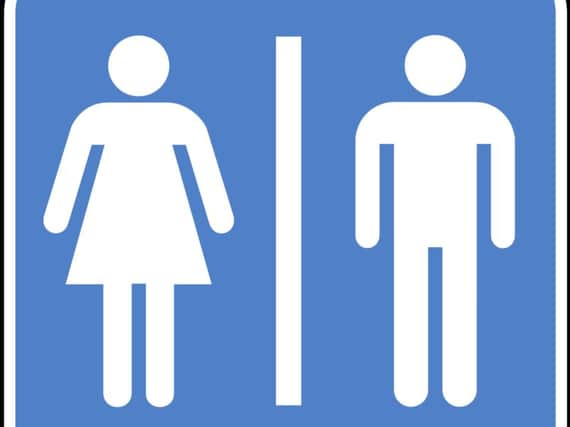"Toilets with urinals" and "toilets without urinals": Sheffield University's £50,000 study into swapping ladies and gents toilet signs that won't offend transgender users


And the survey into public toilets has recommended scrapping the use of 'ladies' and 'gents' with researchers suggesting the 'discriminatory' terms could be replaced with 'toilets with urinals' and 'toilets without urinals'.
Meanwhile facilities for disabled people could be described as 'larger toilets with grab bars', according to the report in today's Sun.
Advertisement
Hide AdAdvertisement
Hide AdThe findings were the result of the year-long Around the Toilet project, led by Dr Jenny Slater of Sheffield Hallam University.
The £50,000 study, funded by the Arts and Humanities Research Council, looked at the way public toilets are designed in an effort to assess if they are still fit for purpose.
It looked specifically at the lack of adequate or accessible toilet provision for disabled and transgender people amid fears that definitions such as 'Gentlemen' 'Ladies' and 'Men's Toilets' are out-dated and discriminatory.
Explaining the reason behind the study in June 2015, Dr Slater said: 'Toilets may seem a frivolous subject but they are at the heart of important discussions about how we understand our own identities.
Advertisement
Hide AdAdvertisement
Hide Ad'The starting point for us is to explore how disabled people and those identifying as trans, gender-queer or non-binary are treated in modern society.'
Speaking last December Dr Slater said: 'The project has been amazing and has led us down avenues of debate we simply never expected to explore when we started out.
'Now we’re using the findings to help start a conversation with architects about how toilets are integrated into public spaces in the future.'
A spokesman for the Arts and Humanities Research Council told the Sun the research tackled 'the concerns and everyday experiences of diverse communities and has the potential to improve their quality of life.'